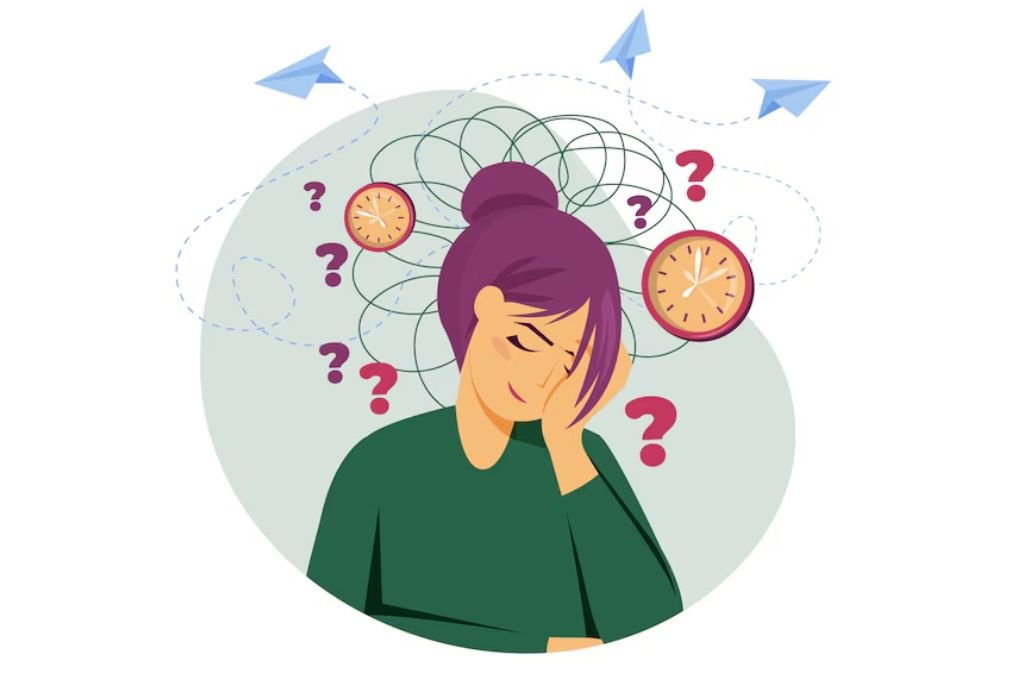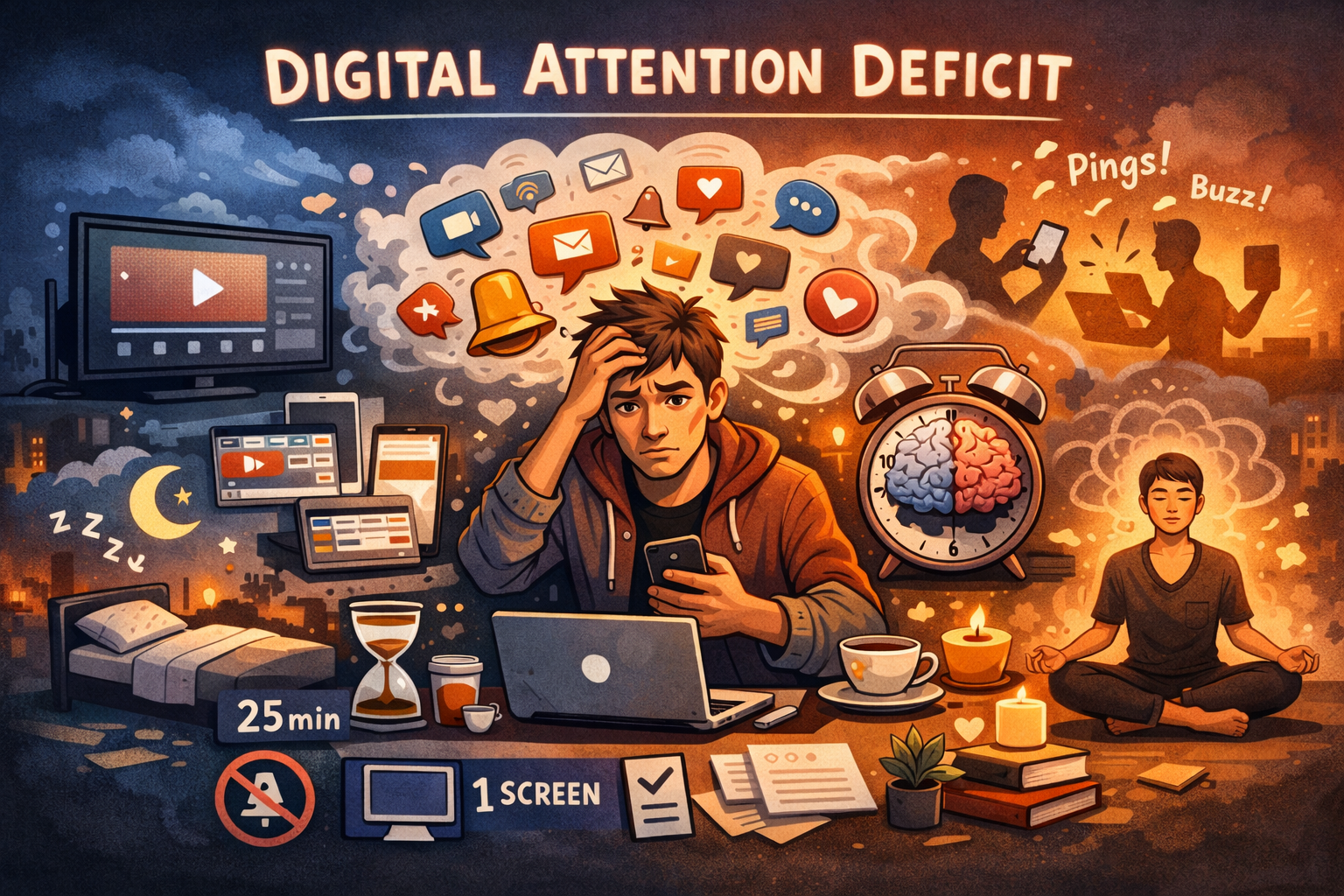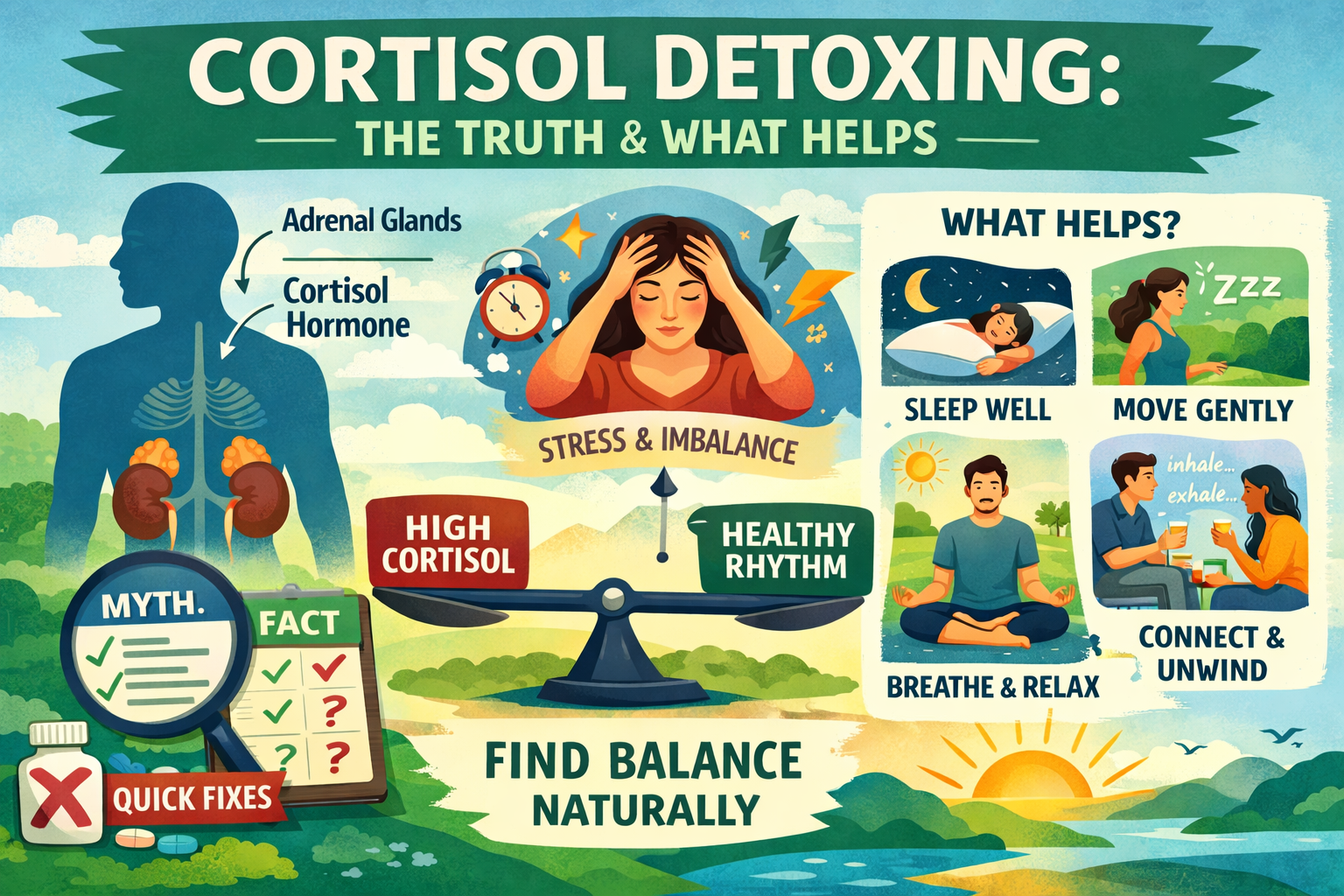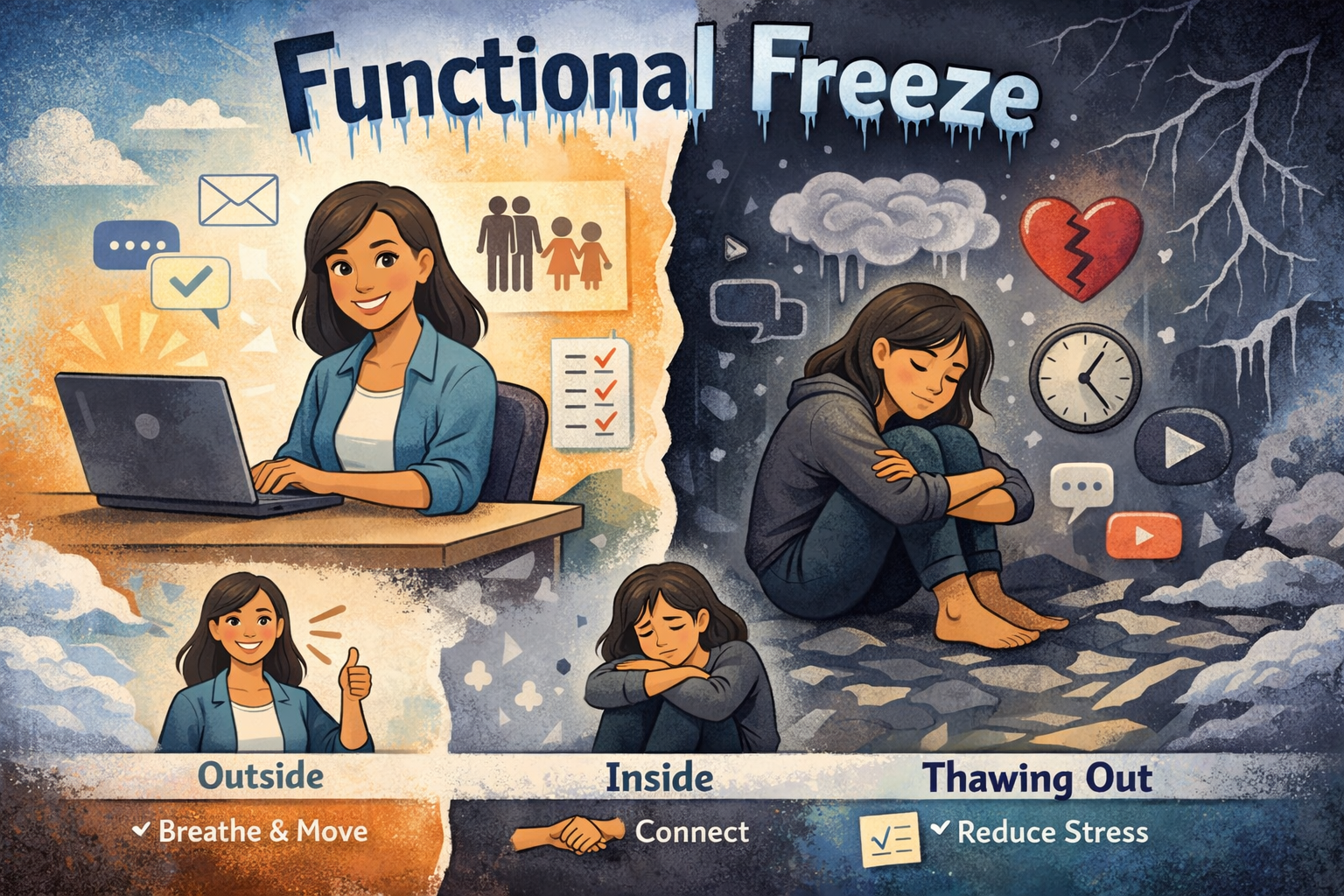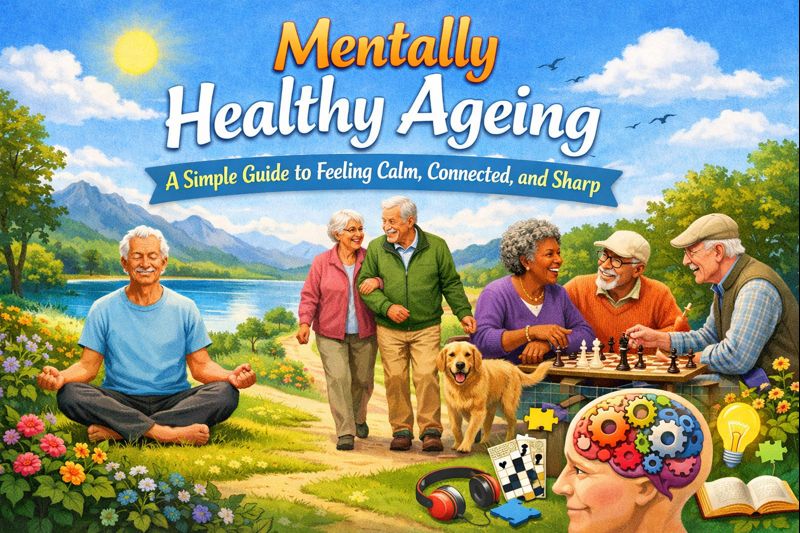The world is witnessing an invisible mental health crisis, and it’s increasing fast in most parts of the world. There are many factors behind it, but more importantly, there are rapid urbanization, social isolation, economic uncertainty and instability, and the COVID-19 pandemic. They all have contributed to the sharp rise in mental health problems. We are seeing a surge in mental health conditions such as anxiety, depression, acute mental stress, and substance addiction, affecting people of all age groups in almost all countries.
Recognizing the early warning signs of mental health conditions is one of the most significant steps in protecting and safeguarding our mental well-being. Earlier is better. Without timely identification of warning signals, the problems can further aggravate. If we are careful and understand these early signs, we can take effective steps to improve and safeguard our mental health.
The Importance of Early Detection
For a variety of reasons, it is a must to recognize the early warning signs of mental health problems.
- First, the chances of experiencing a better outcome through counseling and psychotherapy increase with timely interventions.
- Second, early detection of mental health issues can contain the severity and intensity of symptoms. Otherwise, there is a likelihood of worsening symptoms over time.
Check Out: Discover Your Stress Level
How to Identify Early Warning signs of mental Illness
Besides, early identification of warning signs makes it possible for people to get the right kind of treatment and support services, which enhances the chances of fast recovery and the restoration of a better quality of life.
In the words of Maya Angelou, "Nothing will work unless you do." This statement is beneficial for mental health treatment.
As per a 2023 study published in the Journal of Clinical Psychology, those who recognized and treated early warning signs had a 60% higher chance of avoiding serious mental health issues.
Key Warning Signs to Watch For
-
Disruption in sleep patterns
Facing difficulty in getting sleep is generally the very first early warning sign of mental health issues. There are consistent changes in our sleep patterns. Whether one starts getting more than normal sleep or deficit sleep, both point to the mental health problem. We need to be attentive and careful in recognizing our sleep patterns.
The neuroscientist and sleep specialist Dr. Matthew Walker highlights that "sleep is the single most effective thing we can do to reset our brain and body health again each day."
-
Changes in energy levels and appetite
Substantial changes in eating patterns or energy levels may indicate an early warning sign underlying mental health problems. 75% of people with depression report noticeable changes in their energy level and appetite before other symptoms manifest, according to a study conducted by the University of Michigan.
-
Experiencing mood swings
Everyone experiences mood swings, but if those are persistent or inexplicable, then that needs our attention. Careful observation of these occurrences is necessary. That important first step is often acknowledging and recognizing changes in our moods.
Behavioral and Social Indicators
-
Absence of social engagement
Gradual withdrawal from our family members, friends, or loved ones is generally an early warning sign of emotional and mental distress. Social disconnection and disengagement typically happen three to six months before severe symptoms manifest, as suggested by the research conducted by the American Journal of Psychiatry in 2024.
-
There has been poor performance in academics or at the workplace.
Adverse or negative performance in academia or the workplace may result in harmful effects on our mental health. Poor performance can be manifested in many ways, such as frequent missed deadlines, unsatisfactory output quality, higher distractions at work, or a decline in overall productivity.
On the other hand, in academics, it may lead to falling grades, difficulty in completing assignments, or disinterest in attending classes.
Such performance- and productivity-related issues often arise from hidden factors like mental stress, burnout, mental health issues, a lack of social support, or personal struggles. According to the World Health Organization, lost productivity from mental health issues costs the world economy about $1 trillion a year.
Self-care techniques For Mental Health Issues
According to Eleanor Roosevelt, "You gain strength, courage, and confidence from every experience in which you really stop looking fear in the face." As we practice self-care routines in our daily lives, we experience greater peace and mental well-being.
- Regular engagement in physical and mindfulness exercises is essential.
Regular physical exercise has a huge positive impact on our mental well-being. It includes activities like walking, jogging, swimming, dancing, and so on. Our brain releases endorphins, the natural mood boosters, whenever we exercise. Endorphins are natural chemicals produced by our brains that help us feel good. We refer to them as "feel-good hormones." Endorphins are responsible for boosting our mood, reducing stress, and creating a sense of mental well-being.
Regular exercise also improves our sleep quality and reduces mental fatigue, besides enhancing our cognitive faculties. Further, physical activities provide a sense of well-being and self-esteem.
-
Practice Mindfulness
First, let’s understand what mindfulness is. It is the practice of paying attention to the present moment in a non-judgmental manner. We need to observe and perceive things as they are. It broadly means to cultivate our awareness of our thoughts, feelings, and bodily sensations from moment to moment. Otherwise, we succumb to overthinking, persistent worrying, rumination, obsessive thinking, and so on. These conditions are all early warning signs of mental health issues. When we are mindful, we develop a greater sense of self-awareness. This results in checking in on mental stress and anxiety and improving our overall emotional well-being.
-
Seeking Professional Help
According to research published in The Lancet, results are better when professional advice is sought within three months of identifying early warning signs and symptoms. Never be afraid to seek help from mental health specialists when necessary. Otherwise, those problems would not go away themselves; they are mostly bound to worsen. When the symptoms remain unabated, it is preferable to seek timely medical assistance.
-
Role of Support Systems
It is necessary to establish and maintain strong social support networks. According to a Harvard study from 2023, people who have strong social support systems are 40% more likely to sustain favourable mental health results after therapy.
When to Seek Immediate Intervention
Recognize and respond immediately, without wasting any more time, to the following early warning signals:
- Suicidal thoughts
- Severe panic episodes
- Incapacity to carry out routine work
- Persistent negative automatic thoughts (NATs)
In conclusion
Brené Brown asserts, "You are innately capable of overcoming challenges, but you also deserve love and belonging." Identifying and recognizing mental health-related early warning signs is not about finding faults in us but about appreciating the need to seek professional help. By timely noticing these signs, we can take effective steps to protect our mental health. Taking care of our mind and body is a never-ending journey. Not only do we need to stay attentive and fully conscious, but we also need to be kind to ourselves.
At The Mind Therapy, we help you find a sanctuary from these overwhelming digital influences. Our holistic healing center focuses on empowering you to regain control over your mental well-being.
Our mental health and wellness therapy programs are designed to address the underlying issues caused by social media distractions, such as anxiety, depression, and sleep disturbances. Whether through our in-person sessions or online therapy counseling, we ensure personalized support from the best therapist in Delhi, offering guidance and healing through mindful practices.
Are you looking for inner peace, deep relaxation or holistic solutions for mental health? Visit http://themindtherapy.in - your space for online counselling/therapy, free mental health tests, meditation, sound therapy etc.
Mind Therapy is India's trusted platform for mental health, mindfulness, and holistic healing. Explore expert-led programs, guided meditation, sound therapy and counselling at http://themindtherapy.in


